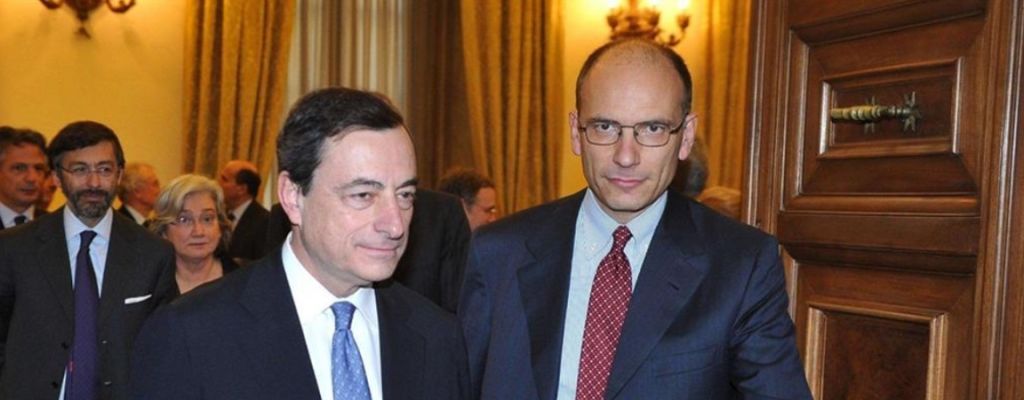European Code of Business Law / Enrico Letta report
- 22/04/2024
- CodeEuropeenDesAffaires.eu
- 3916
- Aucun commentaire
In the report presented to the European Council on April 18, 2024, the former Italian President of the Council, Enrico Letta, now President of the Jacques Delors Institute, issues a warning about the economic decline and loss of competitiveness of Europe.
For Enrico Letta, this decline is not irreversible. He calls for an urgent and collective effort.
In his report, Enrico Letta attributes Europe's decline compared to other major world economies largely to the ongoing fragmentation of markets and economies, nearly 40 years after the adoption of the Single European Act of 1986. This Act was the cornerstone and laid down the landmark achievement of the European construction, the European Single Market impulsed and conducted by Jacques Delors, based on the four freedoms of movement (goods, services, persons, and capital) that now urgently needs improvements to be fully efficient.
The upcoming report by Mario Draghi, former President of the European Central Bank (ECB), on European competitiveness will further confirm the findings and recommendations made by Enrico Letta regarding the urgency to address the fragmentation of European markets and economies without delay.
A radical change is needed. It requires European companies, regardless of their size, to fully take advantage of the single market against their global competitors thriving in large, effective markets, which benefit from legal and financial unification.
Allowing European companies to develop within the Single Market is an economic, strategic, and sovereignty imperative. In this context, Enrico Letta's report, entitled “Much more than a Market”, proposes the creation of a European Code of Business Law.
This European Business Law Code is a prerequisite for a more effective European common market. It will pave the way for the urgent simplification of European business law, by relying on the method of codification on the basis of already enacted European business law. It would make the European Acquis in the field of business law readable and accessible. Through the use of an optional 28th regime, it will address the most detrimental aspects of the current market fragmentation resulting from the coexistence and compartmentalization of the 27 commercial legislation regimes still governing the daily operations of businesses in Europe.
“We can anticipate that a European Code of Business Law would be a transformative step towards a more unified single market, offering companies a 28th regime to operate within the single market. It would directly tackle the current mosaic of national regulations and overcome it, acting as a key tool to unlock the full potential of free movement within the Union” states the former Italian Prime Minister in his report.
In accordance with the recommendations of the Letta report and beyond the urgent simplification it makes possible, the European Business Law Code will allow for the development of new contractual tools that meet the concrete needs of businesses for their development on the European market scale:
- the need for an appropriate structure with a Simplified European Company (SEC);
- the need for financing through a European loan, European securities (euro-guarantee, euro-pledge, etc.), or by subscribing to European bonds;
- the need for coverage by European insurance;
- the need to stimulate innovation through the creation of a European tax regime for “Young Innovative European Companies”...
A unified and codified business law is also a vector for competitiveness and attractiveness, as evidenced by numerous foreign examples. In the United States, the Uniform Commercial Code (UCC) has facilitated the creation of a vast market while in Africa the Organization for the Harmonization of Business Law (OHADA) is widely recognized as a driver of growth in trade and investment.
The establishment of a European Code of Business Law, as proposed by Enrico Letta in his report, will enable the fulfillment of projects that have been struggling for years, such as the completion of the capital markets union (Enrico Letta speaks of a financial union, an investment and savings union). Essential for the financing of European economies and the energy transition, in a context of climate change, and to prevent capital flight to a more promising American economy, this financial union will remain an elusive goal as long as commercial legislations remain fragmented and compartmentalized as they are today in Europe in key areas for its realization.
Mr Letta's report is all about making the internal market the natural horizon for the development of companies. The wake-up call and appeal for a resurgence from Enrico Letta today, and from Mario Draghi tomorrow, are extremely welcome and beneficial. The goal of the President of the Jacques Delors Institute is to ensure that his proposals, although ambitious, but above all feasible, do not vanish into thin air.



